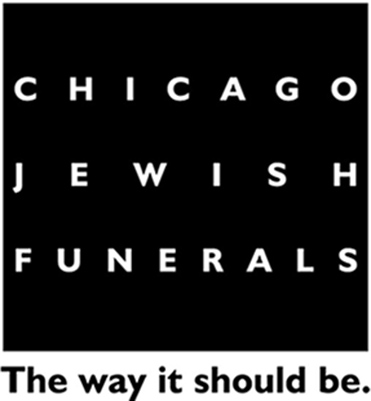Start Planning today
You might have no idea where to begin or even dread the thought of going to a funeral home. That’s why we created this simple video to outline the process. Please take a moment to watch and educate yourself – we hope you will find it helpful.

Planning for a Funeral Service
Throughout this process we assist families in creating a service that is meaningful, appropriate and affordable. Please call 847.229.8822 and one of our compassionate, professional funeral directors will be at your side at any time, day or night.
The information below is from a comprehensive guide we have prepared for families. It includes an arrangement check list, overview of planning a funeral, guidance about children and funerals, and a glossary of terms and phrases. To download the complete A Jewish Funeral pamphlet, click here.
A Jewish Funeral
Many decisions can be made with the counsel of clergy, family members and your funeral director. Above all else, respect is shown to the deceased and the mourners.
Funeral arrangements include:
- Service location
- Time and Date of service
- Select a casket and outer burial container
- Cemetery for burial
- Clergy to officiate
- Special service additions: i.e., music, photo montage, live musicians
- Information for death notice and obituary
- Determining Shiva home
- Selecting pallbearers
- Informing family and friends
- Selecting speakers for the service
Important Information to have
- The deceased’s vital statistics: social security number, date of birth, parents’ names.
- Military discharge papers (if appropriate).
Pallbearers may carry the casket to the grave. Some people follow the Jewish tradition that calls for the casket to stop seven times on the way to the grave. This is generally determined by the clergy. After final prayers are said, the burial takes place. Here family and friends are invited to shovel earth into the grave.
This final act helps mourners with acceptance and closure. El Maleh Rachamim is then recited by the clergy. Mourners recite the Mourner’s Kaddish. The Kaddish is not a prayer of death, but a reaffirmation of life. This prayer is traditionally recited for 11 months less one day for parents. For a list of Jewish prayers, click here.
The funeral takes place without any unnecessary delay. Naturally, if people are coming in from out of town, or other issues arise, the service may have to be delayed.
If the family wishes, there may be the Tahara, the ritual washing and purification. The deceased can be dressed in Tachrichim, the traditional burial garments.
The simple white garment is meant to signify that we are all equal in death and we are judged on our merits and deeds, not material possessions.
Some families wish to have a Shomer, a Hebrew word meaning “guard”, who sits with the deceased until the time of the funeral.
At some point during the funeral, a piece of clothing or a black ribbon is torn and worn as an expression of one’s grief. If the person is mourning the death of a parent, the ribbon/cloth is worn on their left side, over the person’s heart.
All other relatives in mourning, which includes siblings, spouse and parents, wear the ribbon/cloth on their right side.
Children are always welcome at Chicago Jewish Funerals. Many experts agree that children can attend a funeral service at a young age. They suggest if a child is old enough to talk, he/she is old enough to ask if they want to attend. However, we understand that sometimes a child must leave the service.
At the funeral home, we have room (with coloring books and crayons) where a child can sit. While in this room, the funeral service (if desired) may be viewed and broadcast on a television monitor.
The service may consist of Psalms, Scripture readings and a eulogy. Today, there may be more personalization of the service. Several family members, in addition to the clergy, may be asked to speak. Discuss this with the officiating clergy.
The family and friends return home to “sit Shiva”. The tradition calls for a bowl of water and cup to be placed outside the home for visitors to cleanse themselves–metaphorically–as they return from a place of death to a place of life.
Upon returning from the cemetery, a Shiva candle is placed on the memorial plaque, provided by Chicago Jewish Funerals, and is lit immediately. The family has a meal prepared for them (meal of condolence) by friends, and the family should eat before anyone else.
Tradition calls for the inclusion of round foods such as hard boiled eggs, to signify the cyclical nature of life. The word Shiva comes from the Hebrew word for seven. For more information on Shiva customs, click here.
Keep in mind what is aesthetically acceptable, and affordable. The traditional casket is made entirely of wood. The type of casket selected is a family decision. Our funeral directors can help you make the best decision for your family. Caskets may be viewed online (click here) or at our locations.
